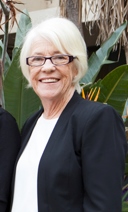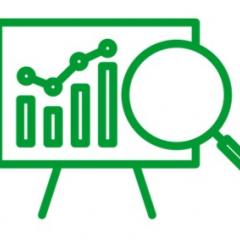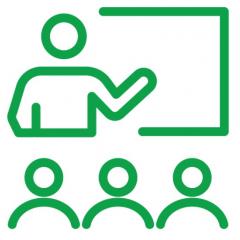A research training workshop turned convention on its head last month by bringing together 17 parents of children with cerebral palsy to share their lived experiences.
Hosted by the Australasian Cerebral Palsy Clinical Trials Network Centre for Research Excellence (AusCP-CTN CRE), the workshop aimed to demystify research for parents and to identify priority areas for future research that families feel are of high importance.
A second workshop was held for a further 21 researchers to help them learn about the struggles faced by families including the questions they most want answered, and the issues they want researchers to better understand.
AusCP-CTN CRE Chief Investigator, Professor Roslyn Boyd said it was now a National Health and Medical Research Council priority for research conducted within the centre to involve consumers in research.

“To help researchers and parents better understand one another, we held two workshops led by Anne McKenzie AM, from Telethon Kids Institute – one for researchers and one for parents,” Professor Boyd said.
“Anne is an internationally recognised expert on training for consumer engagement, so we were very grateful for her expertise, knowledge and guidance.
“No amount of training can prepare a person for the journey of parenting a child with cerebral palsy, but forums like these empower parents, recognise the expertise they gain in caring for their child, and help them play a role in guiding research that is more likely to improve outcomes for their children."
Guest speaker, Richard Ellenson, father of a 20 year old son with cerebral palsy and CEO of the Cerebral Palsy Foundation in New York, said he was honoured to be part of the workshop and to have the opportunity to share his experiences with parents in a similar position – all-be-it halfway across the globe.
Richard is a passionate advocate for children with disabilities and was behind the development of a range of assistive technologies and a purpose-built cerebral palsy channel aimed at families that contains videos from disability advocates and exerts on cerebral palsy from around the world.
“I was both humbled and inspired to share my experiences with other families doing their best to parent a child with cerebral palsy and navigate the complex world of health care and medical research,” Mr Ellenson said.
“There is so much we all have in common: a passion to do all we can for our children, a fear we may never be able to do enough, and a need to find a comfortable balance between fighting the good fight and finding a place of acceptance: a state I think we can best define as ‘love.’ It has been such a joy to be able to bring this shared understanding to my role as CEO of the Cerebral Palsy Foundation and it was quite special to share this work with our friends in Australia.
“It was wonderful to feel the warm reception at this workshop. And as we spoke, I sense how other parents are feeling empowered to play a role in research, and to use their lived experiences to invent new technologies or support tools to help make life easier for our children. Bravo to all the organizers!”
Parents of children with cerebral palsy who wish to be involved in research can be a part of the Australasian Cerebral Palsy Clinical Trials Network Centre for Research Excellence Consumer Network, or get involved in our current studies.



